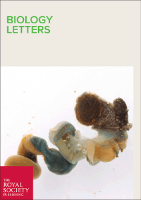
Biology Letters
metrics 2024
Connecting ideas to transform biological understanding.
Introduction
Biology Letters, published by the esteemed Royal Society, stands at the forefront of research in the field of biological sciences, with a strong emphasis on innovative studies that bridge gaps across disciplines. Since its inception in 2005, the journal has garnered significant recognition, achieving a remarkable Q1 ranking in Agricultural and Biological Sciences (miscellaneous) and a percentile of 88th in the same category, according to Scopus rankings. Released in the United Kingdom, the journal offers a platform for authors to share concise research findings and theoretical perspectives that contribute meaningfully to the advancement of biological inquiry. Although not open access, the journal remains highly regarded in the academic community for its rigorous peer-review process and impactful content, making it an invaluable resource for researchers, professionals, and students dedicated to exploring the complexities of biology. With an ongoing commitment to excellence, Biology Letters continues to shape the future of biological sciences.
Metrics 2024
 1.23
1.23 2.80
2.80 3.40
3.40 134
134Metrics History
Rank 2024
Scopus
IF (Web Of Science)
JCI (Web Of Science)
Quartile History
Similar Journals

Journal of Experimental Zoology Part A-Ecological and Integrative Physiology
Innovating research at the intersection of ecology and physiology.The Journal of Experimental Zoology Part A - Ecological and Integrative Physiology, published by WILEY, is a distinguished peer-reviewed journal focusing on ecological and evolutionary physiology, providing a robust platform for research that bridges both ecological and integrative physiological concepts. With an impressive impact factor and recognition as a Q1 journal in both Animal Science and Zoology and Ecology, Evolution, Behavior and Systematics in 2023, it positions itself as a leader in advancing our understanding of organismal biology and environmental interactions. The journal is committed to open access, offering researchers and professionals worldwide the opportunity to share and disseminate their findings freely. Since its inception in 2017, it has rapidly gained prominence—ranking within the top percentiles of Scopus Ranks across several disciplines, including genetics and molecular biology. This not only underscores its relevance but also highlights its vital role in facilitating interdisciplinary approaches essential for addressing contemporary biological challenges. Researchers, educators, and students alike will find in this journal a valuable resource for cutting-edge studies and innovative methodologies in the field.

Journal of Vertebrate Biology
Enhancing global awareness through scientific inquiry.Journal of Vertebrate Biology, a reputable publication established by the Institute of Vertebrate Biology in the Czech Republic, serves as a vital platform for research across the fields of Animal Science and Zoology, Aquatic Science, and Ecology, Evolution, Behavior and Systematics. With its ISSN 2694-7684 and a commendable 2023 Q2 ranking in multiple categories, this open-access journal embraces innovative scientific inquiry and fosters academic discourse. The journal's commitment to disseminating high-quality research is reflected in its Scopus rankings, positioning it within the top quartile in several impactful areas. As it continues to converge its focus until 2024, researchers, professionals, and students alike are encouraged to engage with cutting-edge studies that advance our understanding of vertebrate biology. This publication stands out not only in its scholarly contributions but also in enhancing global awareness of biodiversity and conservation issues.
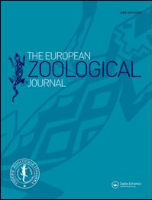
European Zoological Journal
Bridging the Gap Between Research and Ecological SolutionsEuropean Zoological Journal, published by Taylor & Francis Ltd, is an esteemed open-access publication dedicated to advancing the exciting field of zoology. Since its inception in 2017, this journal has progressively established itself as a vital resource for researchers, professionals, and students alike. With its Q2 ranking in Animal Science and Zoology as of 2023, the journal ranks in the 69th percentile among its peers, showcasing its influence and contribution to the discipline. The journal’s broad scope covers a wide range of topics within zoology, aiming to foster an understanding of animal biology and conservation efforts. As an open-access journal, it not only enhances the dissemination of knowledge but also encourages collaborative research across global communities. Situated in the United Kingdom, the European Zoological Journal invites submissions that contribute to the evolving discourse in animal sciences, and endeavors to support the scientific community in addressing pressing ecological challenges.

EVOLUTIONARY ECOLOGY
Exploring the Interplay of Evolution and EcologyEVOLUTIONARY ECOLOGY is a prestigious academic journal published by SPRINGER, exploring the intricate relationships between evolutionary processes and ecological dynamics since its inception in 1987. As a key resource in the field of Ecology, Evolution, Behavior, and Systematics, the journal is recognized for its impactful contributions, holding a commendable Q2 quartile ranking in its category as of 2023. With an emphasis on empirical and theoretical studies that bridge evolutionary biology with ecological principles, EVOLUTIONARY ECOLOGY is essential for researchers, practitioners, and students aiming to deepen their understanding of biodiversity, adaptation, and ecosystem functioning. Although it currently does not offer open access, the journal maintains a commitment to disseminating high-quality research that influences both foundational knowledge and practical applications in the field. Located in the Netherlands, the journal continues to serve a global audience, making significant contributions to advancing ecological and evolutionary research through rigorous scientific discourse and innovation.

Fishes is a premier academic journal dedicated to the exploration and dissemination of cutting-edge research in the fields of aquatic science and ecology. Published by MDPI in Switzerland, this open-access journal has been accessible to researchers globally since its inception in 2016, allowing for the rapid exchange of knowledge that fosters scientific advancement in the study of fish and aquatic ecosystems. With its convergence in the years 2016 to 2024, Fishes proudly holds a notable position in the academic community, evidenced by its category quartile rankings of Q3 in Aquatic Science and Q2 in Ecology for 2023. The journal consistently features innovative research encompassing ecological interactions, conservation strategies, and evolutionary studies within aquatic environments. By integrating interdisciplinary approaches and encouraging contributions from a diverse array of experts, Fishes serves as an invaluable resource for researchers, professionals, and students alike, contributing to the understanding and preservation of our precious aquatic biodiversity.
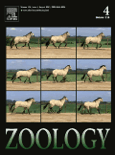
ZOOLOGY
Advancing the frontiers of animal science.ZOOLOGY, an esteemed journal published by Elsevier GmbH, stands at the forefront of research in the Animal Science and Zoology fields. With a notable impact factor and recognized as a Q1 category journal in its discipline, ZOOLOGY is highly regarded among researchers, ranking #98 out of 490 in Scopus rankings. Founded in 1994 and continuing through to 2024, the journal aims to publish cutting-edge, peer-reviewed articles that contribute significantly to the understanding of zoological sciences. Based in Munich, Germany, ZOOLOGY provides both subscription and open access options, ensuring that influential research reaches a wider audience. It serves as an essential platform for disseminating innovative findings, connecting scholars globally, and fostering interdisciplinary collaboration to advance zoological knowledge.
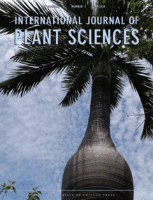
INTERNATIONAL JOURNAL OF PLANT SCIENCES
Innovating research in the world of plant sciences.The INTERNATIONAL JOURNAL OF PLANT SCIENCES, published by UNIV CHICAGO PRESS, is a leading journal dedicated to advancing knowledge in the fields of plant sciences and ecology. With an ISSN of 1058-5893 and an E-ISSN of 1537-5315, this journal has been a prominent platform for groundbreaking research since its establishment, featuring works from 1983 to present. It holds an impressive Q2 ranking in both Ecology, Evolution, Behavior and Systematics and Plant Science, reflecting its reputable standing within the academic community. The journal is well-regarded for its rigorous peer-review process and commitment to high-quality publication standards, making it a favored choice for researchers, students, and professionals eager to engage with the latest findings and innovative methodologies in plant research. While it does not currently operate under an Open Access model, the journal provides ample access options for institutions and individuals keen to explore its curated content. By presenting diverse studies that blend theoretical and practical insights, the INTERNATIONAL JOURNAL OF PLANT SCIENCES plays a critical role in fostering interdisciplinary dialogue and advancing the frontiers of plant science research.
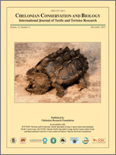
CHELONIAN CONSERVATION AND BIOLOGY
Innovating conservation strategies for turtles and tortoises.Chelonian Conservation and Biology is a distinguished academic journal dedicated to advancing the field of chelonian research, encompassing conservation, ecology, and biology of turtles and tortoises. Published by Allen Press Inc in the United States, this journal is well-regarded within the realm of Animal Science and Zoology, as well as Ecology, Evolution, Behavior and Systematics, holding a commendable Q3 ranking in both categories for 2023. With an ISSN of 1071-8443 and an E-ISSN of 1943-3956, the journal features a diverse range of articles aimed at professionals, researchers, and students, fostering an understanding of the critical challenges facing chelonians worldwide. Although not an open-access publication, Chelonian Conservation and Biology provides high-quality content, including original research, reviews, and case studies, encouraging engagement and collaboration among experts. With coverage extending from 2006 to 2024, the journal serves as a vital platform for disseminating knowledge and promoting conservation efforts essential to the survival of these remarkable species.

MARINE BIOLOGY
Leading the Charge in Marine Research ExcellenceMARINE BIOLOGY, published by Springer Heidelberg, is a leading international journal that has served as a crucial platform for the dissemination of research in marine ecosystems since its inception in 1967. With a strong emphasis on the biological aspects of marine environments, this journal stands out in its field, holding a prestigious Q1 ranking in categories such as Aquatic Science and Ecology for 2023. Researchers and academicians will find valuable insights into ecological, evolutionary, and behavioral studies, making it an essential resource for those investigating marine organisms and their interactions. The journal is indexed in key databases and achieves a commendable rank in various Scopus categories, ensuring a broad visibility for published work. As the field of marine biology continues to grow in relevance, particularly in light of environmental changes and biodiversity loss, MARINE BIOLOGY provides an indispensable platform for advancing knowledge and fostering scientific discourse within the global research community.
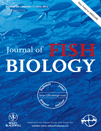
JOURNAL OF FISH BIOLOGY
Navigating the Waters of Fish ScienceJOURNAL OF FISH BIOLOGY, published by Wiley in the United Kingdom, is a distinguished peer-reviewed journal dedicated to advancing the understanding of the biology and relationships of fishes. With a robust history from its inception in 1969 to its future publications extending into 2024, the journal occupies a pivotal position in the academic landscape of aquatic sciences and ecology. Holding a notable Impact Factor and recognized within the second quartile (Q2) for both Aquatic Science and Ecology, Evolution, Behavior and Systematics, it serves as an essential resource for researchers, professionals, and students alike. The journal’s contributors delve into diverse topics ranging from evolutionary biology to conservation strategies, fostering a dynamic interchange of knowledge and innovation within the fish biology community. Access options are currently via subscription, ensuring high-quality, curated content that reflects the latest empirical research and theoretical advancements in the field.